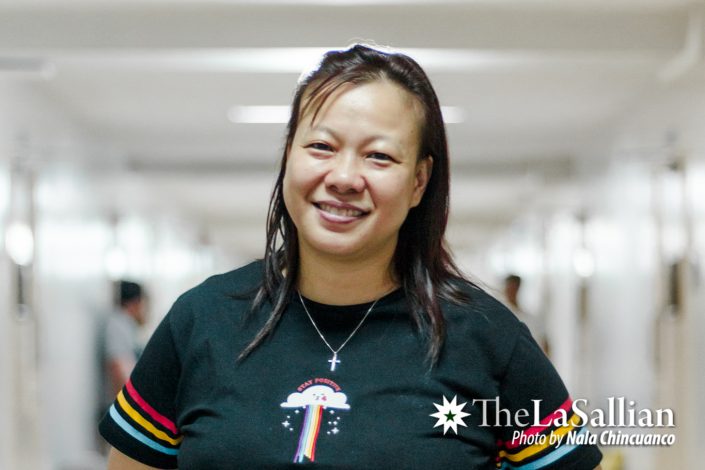No one is the same, and handling a classroom that has several unique individuals can be quite a challenge if one is not up to the task. Teresita Limoanco, an assistant professor and lecturer from the Software Technology Department of De La Salle University, has been teaching for at least 20 years now and has encountered many students throughout her teaching career—each with their own strengths, weaknesses, and needs.
Throughout her stay in the academe, Limoanco has emphasized her desire to help students—regardless of experience or functional ability—understand the fundamentals of Computer Science through various pedagogical approaches, such as providing her students with additional exercises. She often consults with the University’s guidance counselors so that she may learn how to handle her classes. On top of this, she has done her own personal research to find ways to enhance her students’ learning.
Communication is key
Limoanco points out that communication—specifically interacting with peers—can be a challenge for those diagnosed with disorders hindering social interaction like Asperger’s Syndrome (AS) or Attention-Deficit Hyperactivity Disorder (ADHD). AS is a “high functioning” form of autism under the umbrella term of autism spectrum disorder that hinders the behavior of an individual, often characterised by repetitive and restrictive attitudes and social awkwardness, while ADHD is a brain disorder characterised by patterns of inattention and hyperactivity.
She explains, “Special care and persistence are needed to encourage or solicit meaningful and personal interactions with them, so as to help develop their social skills.”
Limoanco further discloses that she was driven to develop her ability and understanding communication with the deaf. She enrolled in three courses on Filipino Sign Language at the De La Salle-College of Saint Benilde’s (DLS-CSB) School of Deaf Education and Applied Studies. Through these classes, she learned how to communicate with the deaf and interacted with the community, giving her the desire to utilize developed technologies and “any little means [to] contribute” to the community.
“Such exposure definitely opens my understanding, with the hope that one day…we will achieve a world where there is a good harmony between [the] deaf [and the rest of society],” the professor states, hoping that the deaf will become more integrated in the workforce.
With regard to accessibility and support for those with special needs, she states that persons with disabilities (PWDs) “need to be treated and seen as equals”. According to the Country Reports on Human Rights Practices for 2018 conducted by the United States State Department, PWDs in the Philippines often face discrimintation when seeking jobs, with only 10 percent actually finding employment. Although the National Council for Disability Affairs has established policies and laws to help PWDs, “[these] law[s] were not effectively enforced, and many barriers remain for persons with disabilities,” the 2018 report stated.
Currently a proposal, she reveals her idea to develop software that would act as an interpreter for sign language and could run on top of currently existing applications, translating speech into a user’s preferred sign language medium. In turn, the software could stand in for human interpreters, which as Limoanco envisions, could help address the general lack of interpreters.
“We can provide a [supplementary] tool to psychiatrists, guidance counselors, priests, etc., who can give appropriate support and guidance to [the] deaf and [the hearing-impaired] without limiting their assistance due to absence of an interpreter,” she justifies.
The challenge with such an undertaking would be providing accurate translations while taking into account how speech can differ among individuals, such as their accent and diction. Even so, Limoanco hopes to one day help develop such translation software in collaboration with institutions such as DLS-CSB and the Philippine National Association of Sign Language Interpreters.

Coming together
Finding ways to communicate more effectively is more than just a sideline for Limoanco—it has become her passion, and it is ingrained in her vision for society. She wishes that others broaden their view of the world, “recognizing that every person is a child of God.” The differently-abled should not be alienated, and their gifts and capacity to contribute to society should be upheld.
Limoanco exemplifies a Science, Technology, Engineering, and Mathematics practitioner who does not hesitate to go out of her sphere of expertise and help other sectors of society, especially people in need. Her discipline and specialization do not hinder her from being human; rather, the field aids her in seeking solutions to alleviate a societal problem from a different viewpoint.
“In an encounter with a person with a physical disability or with special needs, it is too often that we fail to see beyond what is apparent and obvious,” Limoanco emphasizes. “We need to be conscious of this and actively direct our minds to look deeper into the person.”
